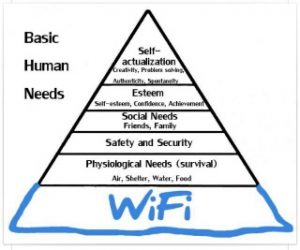‘Being an adult is mostly just googling how to do stuff and feeling tired all the time.’
 I saw this quote on a friend’s Facebook post. It made me smile! Ever wondered what your friends have been googling this past week? Just as our diaries supposedly reveal where our priorities lie, our search history reveals the questions we need answers to; the insecurities or anxieties we face; the curiosities we have.
I saw this quote on a friend’s Facebook post. It made me smile! Ever wondered what your friends have been googling this past week? Just as our diaries supposedly reveal where our priorities lie, our search history reveals the questions we need answers to; the insecurities or anxieties we face; the curiosities we have.
Well, for me, this week I needed to know:
Where to sew my daughter’s Brownie badges,
What the term ‘BREXIT’ means (yes, I know, I should have known that by now),
How to make banana bread,
How far it is to Warwick Castle,
What the Toll costs on the Severn Road Bridge (incidentally, it is £6.60 to cross into Wales, but it is free to come back!)
Do you feel you know me a little better now?! All these questions help to put my week and my plans for half term into context.
Last night I was at Pete Goulding’s seminar about how to choose a Bible passage to speak on. I was reminded that context is everything. Here is an extract from Pete’s notes:
It is important to appreciate that every text we read never stands alone. There is no such thing as an isolated instance, parable, story or thought. Behind every truth there are foundational, contextual forces. These are displayed historically as well as narratively and theologically.
There are reasons why things are said the way they are, why things occur the way they do, and why individuals within such stories, parables and illustrations, act and react the way they do. These background stories (i.e. context) often hold the greatest interpretive keys to fully appreciating the power and relevance of any text. They also ensure that we remain ever anchored to the broader, bigger narrative of scripture.
Rudyard Kipling called the big questions of What? Why? When? How? Where? and Who? – his ‘six honest serving men’; for he knew the power and insight of context: “I keep six honest serving-men / (They taught me all I knew) / Their names are What and Why and When /And How and Where and Who.”
Pete’s teaching on this reminded me of three things:
- Know your Bible and do your homework!
- Be aware of the skewed view of Biblical truth you may hold as a result of upbringing, bias and denominational emphasis.
- Realise how much more effectively you can support a friend by taking the time to understand the context of her pain/issue/situation.
And if you are anything like nosey old me, context is pretty interesting, isn’t it?! So I will leave you to mull over these thoughts. In the meantime, instead of ‘how are you?’ maybe a good question to ask a (good) friend is: ‘what have you been googling this week?!’ (Not someone you have just met – I guess that would be kind of weird, like going through their rubbish or scrolling back through their photos on Facebook from years before you ever met them…in the name of putting them ‘into context’…?!) Let’s just keep on getting to know people so we can offer genuine words of support rather than soundbites or cliches.

